- Home
- Julian Barnes
Cross Channel Page 3
Cross Channel Read online
Page 3
The curé of Pavilly was enthusiastic in his faith, protective of his flock, and privately disappointed with the tolerant worldliness of his bishop. The curé was ten years younger than the century, and had been a seminarist during the heretical and blasphemous events of Ménilmontant; later, he had experienced joyful relief at the trial of 1832 and the breaking-up of the sect. Although his current parishioners had little understanding of the intricacies of Saint-Simonisme - not even the pretentious Mlle Delisle, who had once received a letter from Mme Sand - the priest found it useful in his sermons to allude to the Nouveau Christianisme and to the diabolic behaviour of the followers of Enfantin. They provided him with helpful and chastening examples of the ubiquity of evil. He was not one of those who, in their observation of the world, confused ignorance with purity of spirit; he knew that temptations were put on earth to strengthen true belief. But he also knew that some, when faced with temptation, would endanger their souls and fall; and in his private solitude he anguished for those sinners, both present and future.
As the Rouen and Le Havre Railway began to scrabble its north-westerly curve from Le Houlme towards Barentin, as the encampments moved nearer, as livestock began to go missing, as the devil’s army drew nearer, the curé of Pavilly became troubled.
The Fanal de Rouen, which liked to take an historical perspective on contemporary events, knowingly observed that this was not the first time that les Rosbifs had facilitated progress in the nations transport system: the first road between Lyon and Clermont-Ferrand had been laid down by British captives under the Emperor Claudius in AD 45-46. The newspaper then offered a comparison between the year 1418, when the city had for months heroically resisted the onslaught of the English King Henry V and his fearful Goddons, and the year 1842, when it had succumbed without a struggle to the mighty army of Mister Thomas Brassey, whose warriors carried picks and shovels across their shoulders in place of the fabled longbow. Finally, the Fanal reported, without coming to its own judgment on the matter, that some authorities likened the building of the European railways to the construction of the great medieval cathedrals. The English engineers and contractors, according to such writers, resembled those wandering bands of Italian craftsmen under whose guidance local workmen had erected their own glorious monuments to God.
‘That fellow there’, said Charles-André when they were out of earshot of the English ganger, ‘is capable of shovelling twenty tons of earth in one day. Lifting it above the height of his own head and into a wagon. Twenty tons!’
‘Assuredly a monster,’ Mme Julie responded. ‘And with the diet of a monster.’ She shook her pretty head, and the student watched her ringlets tremble like the crystal drops of a chandelier moved by the breeze. Dr Achille, a tall, long-nosed man with the bright vigorous beard of early middle-age, indulgently corrected the fancies of his wife: ‘Then look at the sumptuous residence of the Minotaur and his companions.’ He pointed to a series of verminous, troglodytic holes gouged directly from the side of the hill. Scarcely superior were the turf shanties, long communal huts and rude wooden sheds which they passed. From one of these dwellings voices were heard in argument, amid them a woman’s.
‘I understand that their wedding ceremony is most picturesque,’ Charles-André remarked. ‘The happy couple are made to jump over a broomstick. That is all. Then they are adjudged to be married.’
‘Easily done,’ said Mme Julie.
‘And easily undone,’ continued the student. He aspired to sophistication, and was keen to please the doctor’s wife, though afraid to shock. ‘I was told … it is said that they sell their women when they are done with them. They sell them … often … it seems … for a gallon of beer.’
‘A gallon of English beer?’ enquired the doctor, setting the student at his ease by a levity of manner. ‘Now that really is too low a price.’ His wife struck him playfully on the arm. ‘I would not sell you, my dear, for anything less than a tonneau of the finest Bordeaux,’ he continued, and was struck again, to his pleasure. Charles-André was envious of such intimacy.
In constructing the 82 miles of the Paris and Rouen Railway Mr Joseph Locke the Engineer was able merely to follow the leisurely descent of the River Seine between those two great cities. But in extending the line to Le Havre - where it would connect with steamer services across the English Channel, and thence with the London and Southampton Railway, completing the route from Paris to London - he was confronted by more strenuous feats of engineering. These difficulties were reflected in the tender price: £15,700 per mile for the Paris and Rouen, in excess of £23,000 per mile for the additional 58 miles of the Rouen and Le Havre. Moreover, the French government insisted upon an investigation into the proposed gradients of the line. Mr Locke had initially proposed a maximum of 1 in 110. Some of the French argued for 1 in 200 on grounds of safety, a proposal which would either have imposed a considerably longer route, or else caused much additional cutting and embanking, thus greatly increasing the cost. Eventually, a compromise gradient of 1 in 125 was agreed between the parties.
Mr Brassey had established himself at Rouen once more, this time accompanied by his wife Maria, who spoke the French language fluently and was able to act as interpreter with officials from the French Ministry. They paid their respects to the Consul, and made themselves known at the Anglican church of All Saints on the Ile Lacroix. They enquired about a circulating library of English books, but none had yet been established. In her idle moments Mrs Brassey visited the great Gothic edifices of the city: St-Ouen, with its lofty triforium and glittering rose-window; St-Maclou, with its carved doors and grotesque Last Judgment; and the Cathedral of Notre-Dame, where a verger in full regalia, with plumed hat, rapier and staff, imposed his presence upon her. He pointed out the circumference of the Amboise bell, the resting place of Pierre de Brézé, the effigy of Diane de Poitiers and a mutilated statue from the tomb of Richard Coeur-de-Lion. He indicated the Gargoyle Window, and recounted the legend of the Tour de Beurre, erected in the seventeenth century with money paid for indulgences to eat butter during Lent.
Mr Brassey’s men took the line from the terminus of the Paris and Rouen, swung it across the Seine on a new bridge, then bent it in a northerly loop through the hills and valleys of the city. They built the Ste-Catherine Tunnel, 1600 metres in length; raised the Darnétal Viaduct; blasted out the tunnels of Beauvoisine, St-Maur and Mont Riboudet. They traversed the river Cailly just south of Malaunay. Ahead lay the river Austreberthe, which was to be crossed at Barentin by a fine and elegant viaduct. Mrs Brassey informed her husband about the Tour de Beurre, and wondered what edifices could be raised in their own day from the sale of indulgences.
‘Prepare ye the way of the Lord, make straight in the desert a highway for our God. Every valley shall be exalted, and every mountain and hill shall be made low: and the crooked shall be made straight, and the rough places plain.’ The assembled villagers of Pavilly duly expected an appeal for willing hands to improve the ragged path which ran from the church to the cemetery. But there seemed no immediate connection between the curé’s introductory citation from the Book of Isaiah and his subsequent comments. He began to warn his flock, and not for the first time, against the perils of a doctrine few had heard of and fewer still would have been tempted by. The farmer who kept the land at Les Pucelles stirred impatiently at the priest’s educated style. In the back pew Adèle, who had been worked harder than usual by her mistress that week, yawned openly.
The curé explained how those heresies most dangerous to Christian doctrine were the very ones which seem to propose themselves as an agreeable and seductive version of the true faith: such was the Devil’s way. The Comte de Saint-Simon, for instance, had affirmed, among other matters, that society must strive towards the amelioration of the moral and physical existence of the poorest class. Such an idea was not strange to those familiar with the teachings of Our Lord in his Sermon on the Mount. And yet what, upon closer examination, did the heretic actually intend? That the dire
ction of society, of Christian society, be handed over to men of science and to the industrial chieftains! That the spiritual leadership of the world be taken from the Holy Father in Rome and transferred to the makers of machines!
And how, moreover, had the followers of this false prophet comported themselves when they banded together into a sinful community to pursue the iniquitous principles of their late leader? They had publicly espoused the community of goods, abolition of the right of inheritance, and the enfranchisement of women. All of which meant that unmarried people of opposite sex lived communally like the brute polygamists of the East; even as they proclaimed the equality of woman with man, they brazenly practised prostitution. The curé of Pavilly spared his listeners the theory of the rehabilitation of the flesh, which he himself knew without examination to be blasphemous, and warned them instead about the dangers attendant upon peculiar and eccentric dress. Those who set themselves up against the true authority of God’s word frequently chose to mark themselves out by adopting a uniform. Thus in the communistic society of Ménilmontant they had worn white trousers to symbolise love, a red waistcoat to symbolise work, and a blue tunic to symbolise faith. This last garment was tailored so that it buttoned at the back, a particular which the polygamists asserted as proof of their fraternity, since none could put on his tunic without the assistance of another. The curé at this point left a passage of holy silence, during which some of his congregation correctly guessed at what he felt unable to express: that the polygamists were therefore also incapable of undressing themselves without assistance.
Adèle in the back pew was by now fully attentive, gazing at the buttons on the front of the priest’s cassock as if gazing at virtue itself; while at the same time remembering a scarlet plush waistcoat which she had set eyes upon only a few days previously. The curé announced his intention of returning to this same theme the following Sunday, and began the blessing.
The French party walked on as far as the cutting. Given the notorious godlessness of the English navvies, they had the vivid expectation of at least seeing a few men labouring blasphemously on the Sabbath; but all remained quiet. The slashed earth peacefully displayed its thick stripes of white chalk, yellow gravel and orange clay. Dr Achille admired the neatness of the incision these rough men had made in the planet’s skin.
Within the chalky ravine the barrow runs were deserted. Charles-André, who was an amateur of the excavations, tried to explain their manner of operation: the planking laid up the sharp slope, the pole at the top of the embankment, the pulley atop the pole, the horse attached to the rope to help the navvy propel his full barrow up the hillside. Charles-André had witnessed immense loads being raised by this method; he had also seen mud sluicing down wet planks, a panicky horse unable to keep its feet, and a navvy hurling himself aside to avoid being crushed by his own barrow. Only the strongest fellows, the giants of the enterprise, had the fortitude and the audacity to perform such labour.
‘Five kilos of beef,’ observed Dr Achille.
‘Even so,’ said Mme Julie, reflecting on the considerable dangers of the enterprise, ‘you would think, would you not, that with ingenuity, surely a machine might raise the earth instead?’
‘There was one invented, I understand. A moving platform. The navvies judged it a threat to their wages, and destroyed it.’
‘I am glad they are not saints,’ rejoined Achille.
As they strolled back towards the encampment, they heard a language not their own, yet not a foreign tongue either. Two men were repairing a shovel, whose shaft was loose on its blade. The larger fellow giving instruction was an English ganger, and the smaller one, owner of the shovel, a French peasant. Their patois, or lingua franca, was partly English, partly French, and the rest an olla podrida of other languages. Even those words familiar to the listeners, however, were forced into a distorted shape; while grammar was wrenched violently out of its true way. Yet the repairers of the shovel, fluent in this macaronic, understood one another perfectly.
‘That is how we shall talk in the future,’ claimed the student with sudden confidence. ‘No more misapprehensions. Nations shall mend their differences as these two fellows are mending their shovel.’
‘No more poetry,’ said Mme Julie with a sigh.
‘No more wars,’ countered Charles-André.
‘Nonsense,’ Dr Achille responded. ‘Merely different poetry, different wars.’
The curé of Pavilly returned to Chapter XL of the Book of Isaiah. Adèle stared at the priest’s virtuous buttons, but he had no more to say about the significance of dress. Instead, he began to explain how the trial and condemnation of the polygamists at Ménilmontant for actions prejudicial to the social order had severed one head of the hydra, but how others had grown in its place. That which heretical doctrine had failed to achieve was to be attained instead by engineering. It was known that many members of the disbanded sect were now active as scientists and engineers, spreading like a canker through the body of France. Some of their number had for years proposed the building of a canal at the Isthmus of Suez. Then there was the Jew Pereire, who openly proclaimed the Railway an instrument of civilisation. Blasphemous comparisons had been made with those holy artisans who had constructed the great cathedrals. The curé protested: the truer analogy was with the heathen Pyramid-builders of ancient Egypt. The English engineers and their ungodly navvies came merely to erect the new follies of the modern age, to manifest once more the vanity of Man in his worship of false gods.
He did not mean that such road building was in itself contrary to the Christian faith. But if the valleys were to be exalted, the mountains and hills to be made low, if the crooked were to be made straight and the rough places plain as had been done with the crossing of the river Cailly near Malaunay and with the proposed viaduct at Barentin, then such deeds must occur, as Isaiah instructed, in order to prepare the way of the Lord, to make a highway in the desert for God. Unless Man’s purpose was guided by the greater purpose of God’s law, then Man remained a brute beast and his greatest labours amounted to no more than the sin of pride.
In the back row, Adèle dozed. The farmer who kept the land at Les Pucelles, having profited well from the appropriation of land required by the Rouen and Le Havre Railway, and having also contributed publicly to the Diocesan Relief Fund for Orphans and Widows, complained in writing to the Bishop about the young priest’s tendency to theoretical fulmination. What the parish needed was straightforward moral instruction on matters of local interest and concern. The Bishop duly admonished the curé of Pavilly, while simultaneously congratulating himself on his astuteness in placing the young man at a safe distance from the city. Let him burn out his fire and his wrath among simple souls, where little harm would be done. The Church was a place for faith, not ideas.
The French party made their way back to the first huts of the shanty village.
‘So we have not been attacked by banditti?’ Achille observed.
‘Not yet,’ replied his wife.
‘Nor robbed by gypsies?’
‘No.’
‘Nor bitten by a plague of locusts?’
‘Not exactly’
‘Nor seen the Pyramid slaves whipped?’
She struck him skittishly on the arm, and he smiled.
The navvy who had been soaping his lurcher was gone. ‘Those dogs are trained to kill our game,’ complained Charles-André. ‘Two of them can take down a fully grown sheep, they say.’
But Dr Achille’s good humour could not be shifted.
‘There are enough rabbits in our country. I would exchange a railway for a few rabbits.’
Yorkey Tom was sitting on the same hard little chair as before, warming his newly shaven chin in the sun. The short pipe clamped in the corner of his mouth pointed nearly to the vertical, and his eyes appeared tight shut. Cautiously, the French party re-examined this ferocious consumer of beef, this lusty scavenger. The ganger had adopted nothing of the French way of dressing. He wore a velvet squar
e-tailed coat, a scarlet plush waistcoat patterned with small black spots, and corduroy breeches held by a leather strap at the waist with further straps at the knee, below which swelling calves descended to a pair of thick high-low boots. Beside him, upon a stool, lay a white felt hat with the brim turned up. He appeared exotic yet sturdy, a strange but commonsensical beast. He was also quite content to be observed, for the eyelid he kept quarter-open to guard his hat also gave him a view of these gawping frog-eaters.
They were at least politely keeping their distance. He had been in France for the best part of five years, and during that time he had been poked and prodded, gazed at and spat upon; dogs had been set on him and local bullies had mistakenly shown a desire to try their strength. Against this, he had also been applauded, bussed, embraced, fed and fêted. In many parts the local Frenchies regarded the excavations as a kind of free entertainment, and the English navvies would sometimes respond by putting on a show of how hard they could work. Ginger Billy, who had taken a Frenchwoman to wife for a couple of years on the Paris and Rouen, would translate their varied expressions of amazement, which Yorkey Tom and his gang took pleasure in provoking. They were kings of their work, and they knew so. It took a year to harden up a healthy English farm labourer into a navvy, and the transformation was even greater for a French spindle-shank who ate only bread, vegetables and fruit, who needed frequent rest and a supply of kerchiefs to mop his poor face.
Now the French party’s attention was distracted by an argument from the neighbouring shanty. The old witch was heaving at one of the thick strings which disappeared into the mire and filth of her stock-pot. Beside her stood a growling, bearded giant, suspiciously checking the hieroglyph on the end of the cable. Up came a joint of submerged meat, the string piercing its centre. The crone tossed it on to a plate and added a wedge of bread. The hairy navvy now transferred his suspicion from the label to the viand. In its few hours under the guardianship of the old woman, it seemed to have lost some of its shape, much of its colour, and all of its identity. The giant began to berate her, though whether for her cooking or for her lack of honesty it was impossible to tell; though both parties were English, their bellowing and screeching were conducted in the excluding lingua franca of the encampments.

 The Sense of an Ending
The Sense of an Ending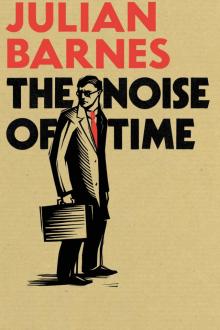 The Noise of Time
The Noise of Time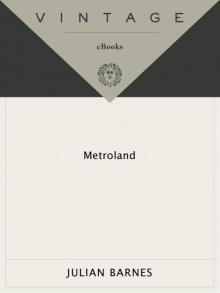 Metroland
Metroland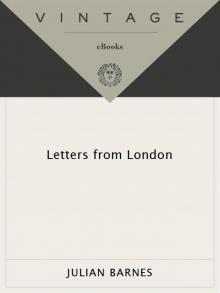 Letters From London
Letters From London Before She Met Me
Before She Met Me Pulse
Pulse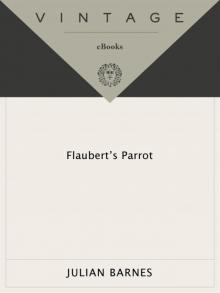 Flaubert's Parrot
Flaubert's Parrot England, England
England, England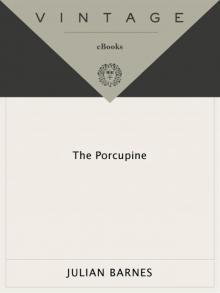 The Porcupine
The Porcupine The Only Story
The Only Story Love, Etc
Love, Etc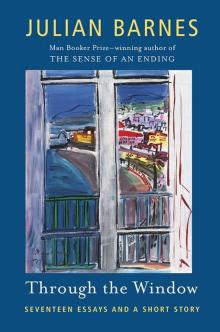 Through the Window: Seventeen Essays and a Short Story
Through the Window: Seventeen Essays and a Short Story Staring at the Sun
Staring at the Sun Cross Channel
Cross Channel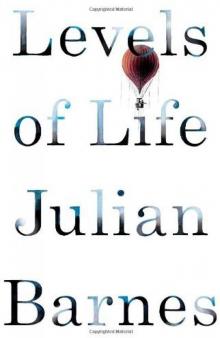 Levels of Life
Levels of Life Arthur & George
Arthur & George Love, Etc.
Love, Etc. A History of the World in 10 1/2 Chapters
A History of the World in 10 1/2 Chapters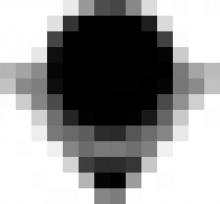 Something to Declare
Something to Declare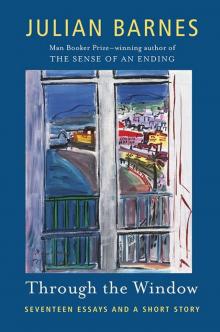 Through the Window: Seventeen Essays and a Short Story (Vintage International)
Through the Window: Seventeen Essays and a Short Story (Vintage International)